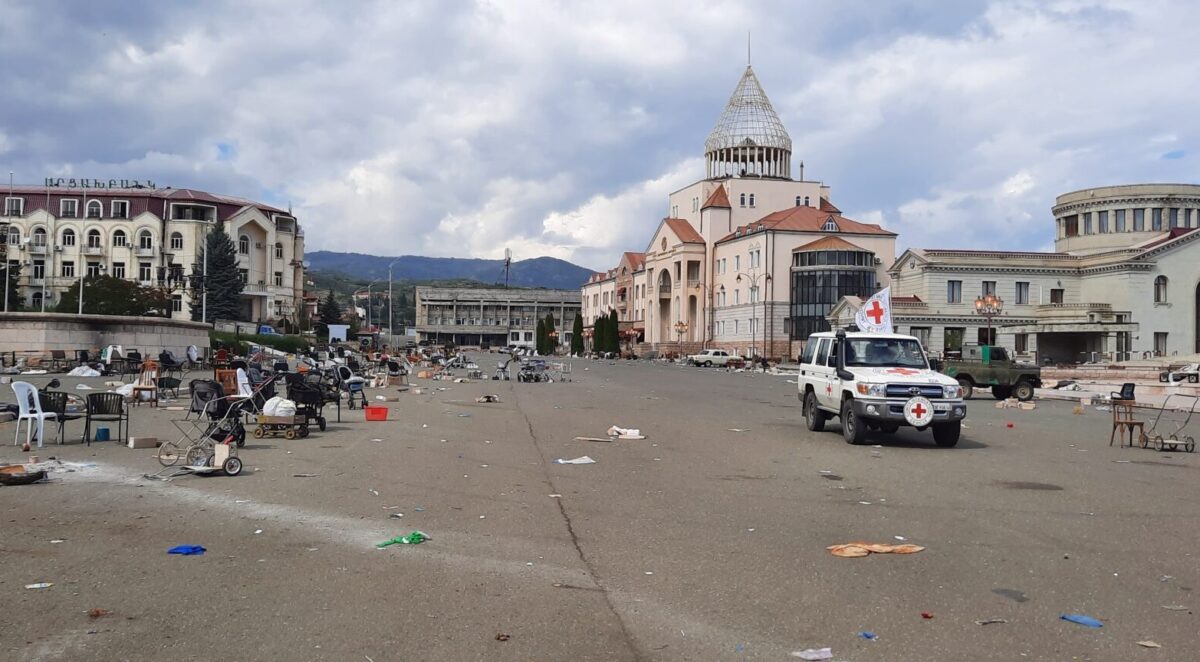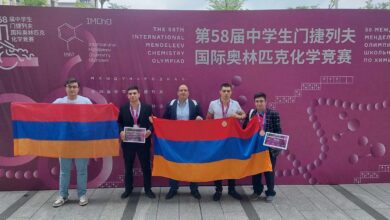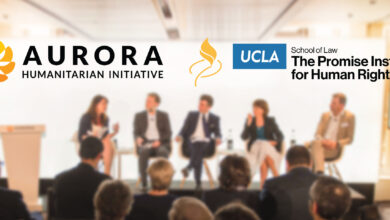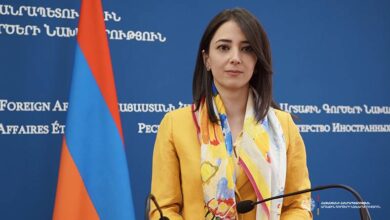
The Lemkin Institue of Genocide Prevention is disappointed with the outcome of the UN mission’s visit to Artsakh (Nagorno-Karabakh) on October 1, which took place after the entire Armenian population of Artsakh had already fled due to forcible displacement following the recent Azerbaijani invasion.
“It is difficult to understand what the purpose of such a mission was and why there was never more pressure for Azerbaijan to allow a mission into Artsakh during Azerbaijan’s 9-month blockade of the region that led up to the invasion,” the Lemkin Institute said, calling on the UN to prepare a proper mission to the Republic of Artsakh, one that is inclusive of international team members from countries neutral to the conflict to conduct a thorough analysis of the current situation on the ground. It stresses that in order to ensure the rights of the Armenians in Artsakh, the UN must act with professionalism, impartiality, and commitment to the values presented in the UN Charter.
The Lemkin Institute of Genocide Prevention says it is disappointed with the outcome of the UN mission’s visit to Artsakh (Nagorno-Karabakh) on October 1, which took place after the entire Armenian population of Artsakh had already fled due to forcible displacement following the recent Azerbaijani invasion. It is difficult to understand what the purpose of such a mission was and why there was never more pressure for Azerbaijan to allow a mission into Artsakh during Azerbaijan’s 9-month blockade of the region that led up to the invasion. If the United Nations is not going to take genocide seriously, it would be better if it sent no missions at all to regions that have experienced genocide.
According to the UN, “the mission aimed to assess the situation on the ground and identify the humanitarian needs of both the people remaining and those who are on the move.”
“Despite the complex purpose of this visit by the mission, the assessment itself and the statement on the outcome of that assessment were completed within one day, begging the question of just how seriously the UN mission could have taken the task of an assessment on the ground. It is worth mentioning that this was the first UN visit to the region in 30 years,” the Lemkin Institute said.
The Lemkin Institute has issued multiple Red Flag Alerts for Azerbaijan since the Lachin Corridor was blockaded in December 2022, as well as an Active Genocide Alert and SOS alerts indicating an extremely high risk of genocide for the Armenians in Artsakh.
“Given the UN representatives’ clear knowledge of the risks to the Armenian population in Artsakh (as demonstrated by the convening of two Security Council meetings on the topic), it is very surprising to us that the mission would visit this region only after the end of the Azerbaijani offensive and after the exodus of more than 100,000 Armenians from the former Republic. The fact that Azerbaijani President Ilham Aliyev donated USD $1 million to the UN Human Settlements Program on September 30—just one day prior to the mission’s deployment to Nagorno-Karabakh—only increases our concerns regarding the honesty and transparency of the mission,” the Institute said.
The Lemkin Institute considers the operation of the mission to be unsuccessful, as it failed to accurately present or assess the reality of the situation in the Republic of Artsakh. “We strongly believe that undertaking the “mission for the sake of a mission” and making a “statement for the sake of a statement” are not adequate responses to situations as serious and as dangerous as what has unfolded in the South Caucasus. We question the scruples and integrity of this mission. The vague operating principles and assessments of the UN mission, which lacked any specific goals, methodology, or recommendations, severely risks undermining the trust that the international community collectively places in the work of the United Nations,” it said.
The Lemkin Institute calls on the UN to prepare a proper mission to the Republic of Artsakh, one that is inclusive of international team members from countries neutral to the conflict to conduct a thorough analysis of the current situation on the ground. “This reality, which is the result of a conflict that has endured for three decades, cannot be assessed in one day. In order to ensure the rights of the Armenians in Artsakh, the UN must act with professionalism, impartiality, and commitment to the values presented in the UN Charter.”








